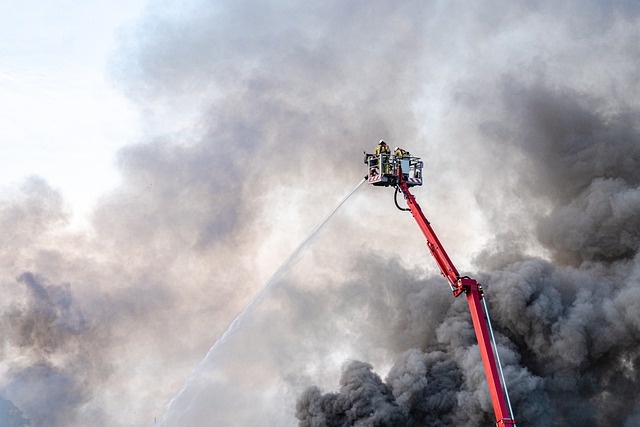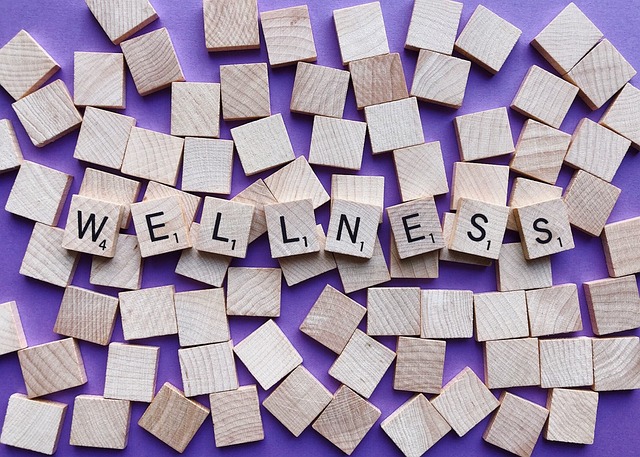The Importance of Emergency Preparedness for Financial Independence
Understanding emergency preparedness is crucial for anyone aiming for financial independence. What does that mean, you might ask? Well, emergency preparedness isn’t just about stocking up on non-perishable food or having a first-aid kit on hand. It extends to every aspect of your financial life, impacting how you can maintain stability in the face of unforeseen events. A sudden job loss, medical emergency, or natural disaster can shake the very foundation of your financial security. This is where the concept of emergency preparedness becomes intertwined with personal finance, shaping how we protect ourselves against the unexpected.
Let’s delve deeper into this. When we think of financial independence, we often envision a life free from debt, where our investments generate enough income to support our living expenses. Yet, this journey can hit numerous roadblocks. Imagine receiving an unexpected medical diagnosis that requires costly treatments. If you haven’t prepared financially for such emergencies, you might find yourself derailing your plans for independence. Thus, embracing emergency preparedness becomes an active choice, one that ensures you have buffers in place, allowing your financial strategies to remain intact regardless of life’s curveballs.
Building an Emergency Fund
One of the cornerstones of emergency preparedness in achieving financial independence is establishing an emergency fund. This fund acts as a financial safety net. The general recommendation is to save three to six months’ worth of living expenses. This may seem challenging at first, especially when it feels like every dollar counts toward various expenses, such as rent, groceries, or debt repayment. However, building this emergency fund can completely change your financial landscape for the better. Think of it as a way to insure yourself against life’s unpredictability.
But how do you go about building this fund? Start by analyzing your monthly expenses. Identify fixed costs like rent, utilities, and essential supplies, then multiply that by the number of months you want to cover. Next, set a savings goal. It’s best to automate your savings by funneling a certain amount each month into a separate savings account. This way, that money becomes untouchable for everyday spending. A high-yield savings account could be beneficial here since it provides interest while keeping your fund liquid and accessible in an emergency.
Moreover, regularly revisit your emergency fund goal. As your life circumstances change, your target might shift. For example, if you take on a new job with higher income, consider increasing your savings goal. On the flip side, if you’re facing financial challenges, assess where you can cut back to allow for consistent savings. Remember, the goal is not perfection but progress. By prioritizing your emergency fund, you’re actively investing in your future security and independence.
Insurance: A Key Component of Preparedness
Another crucial element of emergency preparedness is having the right insurance in place. Many people overlook this aspect, but it plays a significant role in safeguarding your financial independence. Different types of insurance protect various facets of your life—from health insurance to homeowners or renters insurance, and even liability coverage. Each type serves as a guarding tool against potentially crippling financial blows.
Health insurance, for instance, is vital. Medical emergencies can occur without warning, and the associated costs can spiral quickly. Having adequate health insurance coverage protects you from exorbitant medical bills, allowing you to focus on your recovery rather than worrying about finances. Evaluate the options in your area. Look for plans that align with your health needs while considering your budget. While cheaper plans may seem attractive at the outset, they often come with high deductibles that could leave you in a tight spot financially should you require significant medical attention.
Homeowners or renters insurance covers your belongings and liability; it’s another layer of protection. If a natural disaster strikes, such as a fire or flooding, recovering without insurance can be annual life-altering. Just imagine facing the prospect of rebuilding your life without adequate funds or resources. On top of that, if someone gets injured on your property, liability insurance protects you against claims and potential lawsuits. These elements, while often regarded as an expense, are actually vital components of your overall financial strategy, ensuring you minimize risks that could sabotage your journey toward financial independence.
Debt Management and Financial Independence
Managing debt is another essential aspect of emergency preparedness. Debt can become a heavy anchor that pulls you down, especially during an emergency when your finances are already stressed. Whether it’s student loans, credit card debt, or auto loans, having a structured plan to manage and reduce debt is fundamental. It allows you to maintain flexibility and options, preserving your financial independence.
Begin by understanding your total debt, including interest rates and monthly payments. This assessment provides clarity and helps outline your priorities. Aim to pay off high-interest debts first, as they can compound quickly, leading to more significant financial burdens over time. Consider utilizing the snowball or avalanche method, both of which involve tackling your debts systematically. With the snowball method, you focus on the smallest debt first to gain momentum. In contrast, the avalanche approach emphasizes repaying debts with the highest interest rate, saving you money in the long run.
Also, reinforcing your credit score may play a crucial role in financial independence. Ensure you make payments on time, keep credit utilization low, and avoid opening unnecessary credit accounts. A strong credit score grants you access to better interest rates when you need loans, thus lowering the cost of borrowing. Essentially, when emergencies strike, the weight of debt lessens your ability to respond effectively. By managing and reducing your debt proactively, you’re effectively preparing yourself for those uncertain moments and improving your overall financial health.
Educating Yourself on Financial Literacy
Education is power, especially regarding personal finance and emergency preparedness. Financial literacy involves understanding key concepts like budgeting, investing, retirement planning, and debt management. Read books, attend workshops, or even take online courses focused on personal finance. The knowledge you gain equips you to make informed decisions, enhancing your ability to respond to emergencies effectively.
One way to improve your financial literacy is by engaging with online resources. Websites, blogs, and podcasts dedicated to personal finance offer practical insights and strategies that can transform your approach to money management. Moreover, consider following financial experts on social media who share valuable advice and help demystify complex concepts. These resources provide actionable tips, from understanding how interest works to mastering the art of budgeting.
Likewise, share your knowledge with family and friends. The more discussions you have about finance, the better you’ll understand it yourself. Plus, you’ll create a supportive network that encourages responsible financial behaviors. The goal here isn’t perfection. Instead, a commitment to continual learning empowers you to make better choices and prepare more effectively for emergencies, thereby maintaining your path toward financial independence.
FAQ
1. What is emergency preparedness, and why is it important for financial independence?
Emergency preparedness involves planning and taking proactive steps to manage unexpected situations effectively. It is crucial for financial independence because it safeguards individuals against financial setbacks that can arise from emergencies like job loss, health issues, or natural disasters.
2. How much should I save in my emergency fund?
It’s recommended to save three to six months’ worth of living expenses in your emergency fund. This provides a financial buffer that allows you to cover essential costs during unexpected situations.
3. What types of insurance should I consider for proper emergency preparedness?
Key types of insurance to consider include health insurance, homeowners or renters insurance, and liability insurance. These cover various risks and help mitigate financial strain in emergencies.
4. How can debt management improve my financial independence?
Effective debt management reduces financial burden and stress, enabling you to allocate funds towards savings or investments. By managing debt proactively, you position yourself better to handle emergencies without being overwhelmed.
5. Why is financial literacy essential for emergency preparedness?
Financial literacy empowers individuals to make informed decisions regarding budgeting, investing, and managing debt. Understanding these concepts helps you develop effective strategies for emergency preparedness and maintaining your financial independence.



